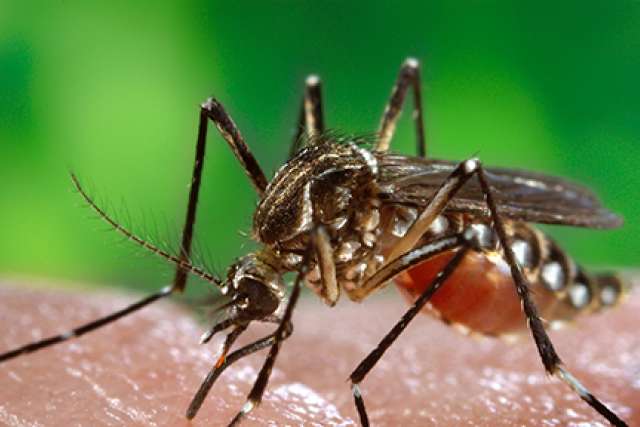New UCLA-led research suggests that 32% of children up to the age of 3 years who were exposed to the Zika virus during the mother's pregnancy had below-average neurological development.
The study also found that fewer than 4% of 216 children evaluated had microcephaly —a smaller-than-normal head that is one of the hallmarks of the mosquito-borne disease. The heads of two of those children grew to normal size over time, the researchers reported.
The study was published in the journal Nature Medicine.
The findings, conducted by UCLA researchers with colleagues in Rio de Janeiro, Brazil, where the disease was first detected, as well as in Austria and Germany, are a follow-up to previous research. That study showed substantial neurologic damage identified through developmental testing and neuroimaging in children younger than age 2 whose mothers were infected with Zika during their pregnancies.
"Children who were exposed to Zika during their mothers' pregnancy need to have developmental assessments over time, and eye and hearing exams should be performed," said the study's lead author, Dr. Karin Nielsen-Saines, a professor of clinical pediatrics in the division of pediatric infectious diseases at the David Geffen School of Medicine at UCLA and at UCLA Mattel Children's Hospital. "If there is risk of developmental delay, or developmental delay is identified, there are cognitive, language and behavior interventions that can be put in place to improve outcomes for these children."
The researchers tested 146 children using the Bayley-III test, an extended neurodevelopmental assessment that checks language, cognitive and motor development. They used the Hammersmith Infant Neurologic Evaluation, or HINE, a less detailed assessment, on the 70 other children whose parents did not wish to take their children in for the lengthy Bayley-III.
The researchers found that in the Bayley-III group, 51 children tested for language, 14 tested for cognitive development, and 24 evaluated for motor development scored below average.
Of the HINE group, three children had abnormal results and 67 showed normal results.
In addition, 10 of 137 children who had eye exams showed abnormal results and 14 of 114 children who underwent auditory checks had hearing deficits.
Two children in the study had normal head measurements at birth, but developed microcephaly during their first year, while two others with microcephaly at the time of birth went on to develop normal head circumference by age 1.
"This means that microcephaly is not necessarily static," Nielsen-Saines said.
The researchers did not have a comparison group of non-Zika-exposed children born at the same time and raised in the same environment as those known to have been exposed to Zika in-utero.
"Zika exposure can be a very difficult condition to diagnose in retrospect, so we can't rule out undiagnosed Zika infection in a control group of children enrolled at the same time," Nielsen-Saines said. "Neurodevelopmental tests should be done simultaneously in similar populations with the same background."
Nielsen-Saines noted that proper long-term follow-up of children whose mothers had Zika infection in pregnancy is necessary.
"These children require close attention and ongoing surveillance, so that prompt interventions to improve their development can be provided if needed," she said.
Study co-authors are Tara Kerin, Dr. Irena Tsui, Dr. Kristina Adachi, Dr. James Cherry, and Genhong Cheng, all of UCLA; and other researchers from California, Austria, Brazil and Germany. The journal article contains the full list.
The study was funded by the National Institutes of Health's National Institute of Allergy and Infectious Diseases, the National Eye Institute, the Thrasher Research Fund, the Bill and Melinda Gates Foundation, the United Kingdom's Department for International Development, ZikaPlan (Preparedness Latin American Network) and other sources in Brazil and France.



